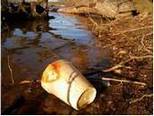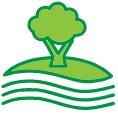On September 14, 1998, the Texas Commission on Environmental Quality (TCEQ) received full authorization for the Texas Pollutant Discharge Elimination Program (TPDES). Cities were grouped into a phased approach for stormwater permitting.
Municipal Separate Storm Sewer Systems (MS4’s) with a population of 100,000 or greater as of the 1990 Census were grouped into Phase I.
The City of Harker Heights is an MS4 with a population of less than 100,000 as of the 1990 Census and was grouped into Phase II.
TCEQ issued the Phase II, MS4 General Permit August 13, 2007. All Phase II cities operated under the 2007 General Permit until each city developed its own Stormwater Management Program (SWMP). The TCEQ issued the City of Harker Heights an MS4 General Permit on January 22, 2009. The General Permit is effective for five years with full implementation of the SWMP by August 13, 2012.
The City of Harker Heights has completed the 5 year SWMP ending August 13, 2012.
The City of Harker Heights has completed the 5 year SWMP ending December 13, 2018. The City has developed and submitted the new SWMP to the TCEQ in July 2019. The updated 5 year plan will include the previous elements of the Harker Heights SWMP with additional requirements in the new General Permit. The current SWMP 01-24-19 through 01-23-24 is available for viewing on this website.
For 2023, Stormwater Best Management Practices to be implemented in the City of Harker Heights include the following:
• Public education on stormwater related information.
• Ongoing city wide street sweeping.
• Community Participation-Storm Drain Catch Basin Markers.
• Hold an area Household Hazardous Waste Day.
• Dry Weather Screening of Outfalls.
• Site Inspections and Enforcement.
• Remedy illicit connections.
• Implement the Catch Basin Cleaning Program.
• Implement the Detention Pond Inlet and Trash Rack Cleaning Program.
• Employee Training.
• Review stormwater related ordinances.
• Provide a stormwater page on the City Website.
• Seek public input on city facilities and operations/maintenance of facilities relating to stormwater.
• Conduct quarterly sampling for e-coli bacteria levels along Nolan Creek and Trimmier Creek.
Click here to view the Harker Heights Stormwater Management Plan STORMWATER RUNOFF
STORMWATER RUNOFF
Stormwater runoff occurs when precipitation from rain flows over the ground. Impervious surfaces like driveways, sidewalks, and streets prevent stormwater runoff from naturally soaking into the ground.
Stormwater can pick up debris, chemicals, dirt, and other pollutants and flow into a storm sewer system or directly to a lake, stream or river. Anything that enters a storm sewer system is discharge untreated into the water bodies we use for swimming, fishing and providing drinking water.
Polluted stormwater often affects drinking water sources. This, in turn, can affect human health and increase drinking water treatment costs.
STORMWATER Hotline
Report pollution in the City's stormwater system.
Monday - Friday 8:00am -5:00pm Normal Business Hours: (254) 953-5649
Holidays, weekends and after 5:00pm weekdays: (254) 319-4996
STORMWATER POLLUTION
Easy Ways to Protect our Water:
1. Limit use of fertilizers and pesticides
2. Properly use and dispose of hazardous products
3. Clean up after your pet
4. Don’t litter
5. Dispose of Yard Waste Properly
City Facility Operation and Maintenance
Report city operation failures in the storm water system call the Stormwater Hotline
Monday - Friday 8:00am -5:00pm Normal Business Hours: (254) 953-5649
Holidays, weekends and after 5:00pm weekdays: (254) 319-4996
STORMWATER MANAGEMENT
Stormwater management practices help control nonpoint source pollution through the use of nonstructural and/or structural techniques to intercept surface runoff from developed areas, filter and treat this runoff, and then discharge it at a controlled rate. Stormwater quality is governed by the accumulation of pollutants on the entire surface area. As the use of chemicals around the homes increased, the more degraded the stormwater runoff from your property will be.
1. Limit the amount of impervious surfaces in your landscape.
2. Allow “thick” vegetation or “buffer strips” to grow alongside waterways to filter and slow runoff and soak up pollutants.
3. Plant trees, shrubs, and groundcover.
FOR MORE INFORMATION VISIT:
U.S. Environmental Protection Agency Web sites:
www.epa.gov/npdes/stormwater or www.epa.gov/nps
Or view our brochures:
Stormwater Brochure 1
Stormwater Brochure 2
Stormwater Brochure 3
Stormwater Brochure 4
Stormwater Brochure 5
Stormwater Brochure 6
Stormwater Brochure 7
Stormwater Brochure 8
Stormwater Brochure 9
Stormwater Brochure 10
Stormwater Brochure 11
Stormwater Brochure 12
Stormwater Brochure 13
Stormwater Brochure 14
